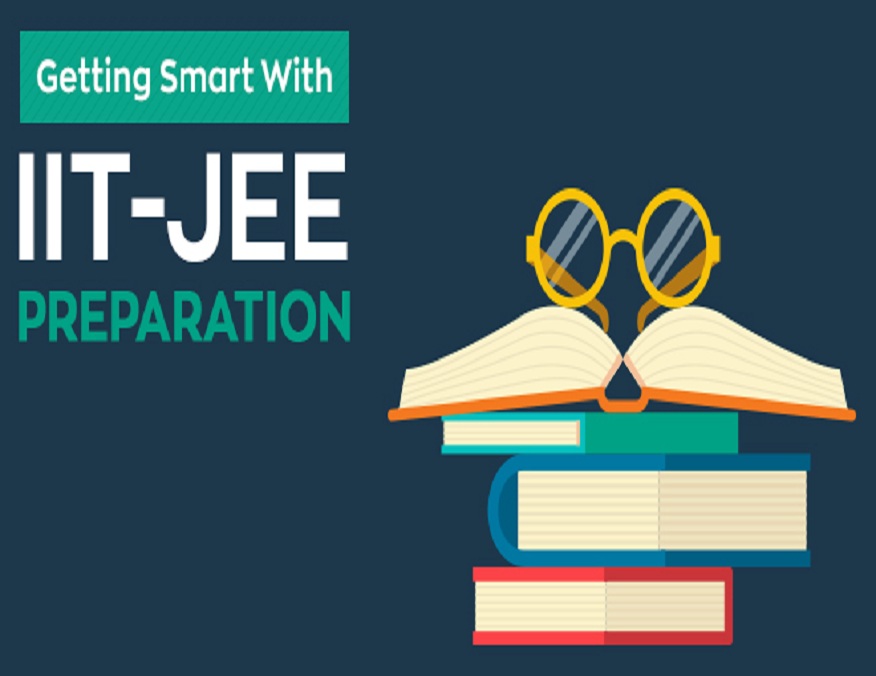 Posted On
Posted On
How To Crack IIT JEE In Your First Attempt
 Posted On
Posted On
Did you know that first-time test takers make up the majority of JEE Main and JEE Advanced exam passers? According to some accounts, the majority of successful applicants passed the exams on their first try—nearly 60%.
So, if you’re set on passing the IIT JEE on your first attempt, your chances are good. Try IIT coaching institutes in srinagar and crack IIT JEE in your first attempt. In this article we will be exploring the top tips to crack IIT JEE in your first attempt. Let’s dig deep!
Table of Content
Tips on How To Succeed in IIT Jee on Your First Attempt
Understand the syllabus, paper format, and grading system
Carefully choose your study materials
A focus on theory: understanding fundamental ideas
Quality over quantity as a priority
Give the syllabus for classes 11 and 12 the same weight
Enjoy your preparation and study time
Complete endless practice tests and exams from prior years
Maintain a positive attitude and be determined
Tips To Crack IIT Jee In Your First Attempt
1. Understand the syllabus, paper format, and grading system
Learn the JEE syllabus in its entirety first. Learn the themes, comprehend the concepts, and practice the questions in accordance with the syllabus.
Making a schedule or study plan would be a smart move, as would consistently scheduling study time. Make sure to take little breaks in between lengthy study sessions to prevent attention and enroll in JEE coaching in Srinagar.
2. Carefully choose your study materials
To achieve the greatest outcomes on the JEE exams, selecting the appropriate study material is crucial. The study materials for JEE preparation should comprise NCERT books, test questions, and other materials.
3. A focus on theory: understanding fundamental ideas
Although there are theoretical and numerical questions in the JEE exam, students should concentrate more on the theoretical portion because this is where the majority of questions are derived from.
Additionally, it is simpler to answer numerical problems when you have a solid grasp of the theoretical principles. You will probably get stuck on each question if your foundational understanding is lacking, wasting time that could be used on other problems.
Since the JEE exam has a time limit, students must make sure they have excellent time management abilities. Developing the fundamental ideas would make it simpler to contribute to problem solving.
4. Make chapter-specific notes
It will be simpler for you to review later, in the final few days before the exam, if you can take useful notes while you study each chapter of the JEE syllabus.
5. Quality over quantity as a priority
Take each idea and fully comprehend it one at a time. Avoid taking on too many topics at once and taxing your brain. You will comprehend crucial concepts more fully if you learn them one at a time, and you will learn more quickly overall if you use a structured learning strategy.
6. Questions from previous years
Obtain the JEE Main question papers from the previous five years and carefully review them. Students can estimate the weight and kind of questions for each segment of the exam using this information.
7. Give the syllabus for classes 11 and 12 the same weight
Learning both the class 11 and class 12 curricula is essential because they are used as the basis for the JEE Main question paper. The weighting ratio for classes 11 and 12 on the JEE Main question paper is often 60:40 or 40:60, although it can alternatively be 50:50. It is equally important to study both curricula.
8. Enjoy your preparation and study time
Positivity is key while you take the exam. You won’t be able to provide your best effort and will experience tension if you treat the exam as a duty or responsibility.
While studying for your JEE examinations, have fun and try not to worry. Stress affects your performance and increases your susceptibility to panic and anxiety attacks.
9. Revise, again and again
You won’t be able to retain what you have learned until and until you update. Every step of your JEE preparation, including revision, must be completed. Always try to review the key ideas before bed, and develop the practice of taking notes and reviewing them.
To effectively manage your time, frequently practice online mock exams. You will be able to learn the formula for answering questions with enough practice. You can obtain a fair understanding of the type of questions that are often asked in a JEE test by completing question papers from prior years.
10. Complete endless practice tests and exams from prior years
Solving as many practice papers as you can is one of the keys to passing the IIT JEE on your first try. Your speed and accuracy in answering questions will improve as you practice more. Take as many online practice exams as you can if you plan to take the JEE on a computer.
11. Maintain a positive attitude and be determined
Think positively on attaining your goals. You could find it challenging to control and comprehend things at times, but don’t give up.
Conclusion
Success in the JEE main is a requirement for students from around the country who want to sit the IIT examination this year. This is one of the most difficult exams offered in India each year. Nervousness among applicants is common the night before tests.
In essence, this test takes place in January of each year. To ace the test on the first try, a student needs to adhere to a few basic and simple procedures. Even though these processes are fairly simple, they nonetheless need continuous attention and practice in order to succeed on the test.
FAQs
What is the syllabus for JEE?
The syllabus for JEE includes topics from Physics, Chemistry, and Mathematics, and is based on the NCERT curriculum of classes 11 and 12.
How many times can a candidate appear for JEE?
A candidate can appear for JEE Main twice a year, in January and April sessions. However, JEE Advanced can only be attempted two times in consecutive years.








